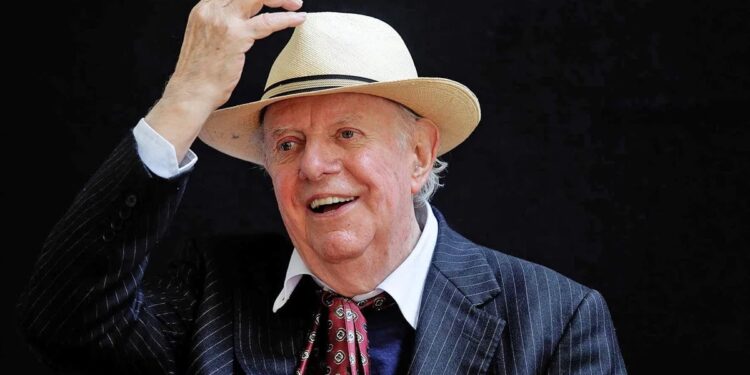Italian playwright Dario Fo was awarded the Nobel Prize for Literature for his work that blends satire, political commentary, and theatrical innovation, the Swedish Academy announced. His selection recognised a career that challenged authority and used humour to expose social and political injustice.
A voice for the people
Fo, born in 1926 in Sangiano, Italy, was celebrated for transforming the stage into a platform for the powerless. His plays often targeted corruption, hypocrisy, and the abuse of power, delivered through farce and improvisation that made his work accessible to broad audiences. The Academy praised him as a writer “who emulates the jesters of the Middle Ages in scourging authority and upholding the dignity of the downtrodden.”
Political theatre with purpose
Fo’s most famous play, Accidental Death of an Anarchist (1970), lampooned the police and judicial system following the mysterious death of an Italian anarchist in custody. The play’s sharp wit and moral outrage reflected Fo’s broader belief that theatre should confront power rather than comfort it. Other notable works, including Can’t Pay? Won’t Pay! and Mistero Buffo, extended his influence across Europe and beyond, turning political resistance into popular entertainment.
Controversy and acclaim
Throughout his career, Fo faced censorship, arrest, and bans from state television, yet his plays continued to draw large audiences. His wife and creative partner, Franca Rame, played a central role in his productions, both as co-writer and performer. Their collaboration became a symbol of artistic integrity and social commitment during turbulent decades in Italy’s political history.
A legacy of laughter and rebellion
By awarding Fo the Nobel Prize, the Swedish Academy highlighted the enduring power of satire as a force for change. His fearless humour and unflinching critique of authority placed him in the lineage of classic satirists while making him one of the most influential dramatists of the 20th century. Fo’s message—that laughter can be revolutionary—remains as vital today as when his plays first premiered.
Newshub Editorial in Europe – 9 October 2025




Recent Comments